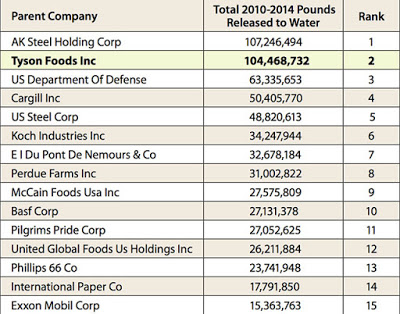In his January 2016 State of the Union Address, President
Obama smugly boasted that “We spend more on our military than the next eight
nations combined.” According to the Stockholm International Peace Research
Institute (SIPRI), in 2014 (the most recent year for full figures) the US was
responsible for 34 per cent of the world’s military spending. It spent three times as much as China and
over seven times as much as Russia. It having been calculated that each of the
many thousands of armed forces personnel in Afghanistan “cost an average of an
eye-popping $2.1 million” a year.
Obama’s Defence Secretary Ashton Carter gave a speech on
defense affairs at the Economic Club in Washington, which is proud of the fact
that it provides “a forum for prominent business and government leaders who
have influenced economic and public policy both here and abroad. Members
represent over 600 businesses and organizations [in Washington, DC] that are at
the forefront of the private sector economy.” Carter told the Economic Club
that “the Pentagon would seek a $582.7 billion budget next year and reshape
spending priorities to reflect a new strategic environment marked by Russian
assertiveness and the rise of Islamic State.” In his speech Carter said that
“the Pentagon plans to spend about $2 billion over the next five years to buy
more Raytheon Company Tomahawk missiles and upgrade their capabilities,
bringing the inventory of the missiles to above 4,000.” At midday on February 2, Raytheon shares
stood at 123.47. By 4 p.m. next day they
had increased to 128.07.
After this chat to the Club of “prominent leaders” of military-focused
commercial enterprises, Reuters reported that Mr Carter “flew to the Naval Air
Weapons Station China Lake in California to get updates on new high-end weapons
being developed and tested there, including precision Long Range Anti-Ship Missiles
built by Lockheed Martin Corp. He said the [defense] department would spend
nearly $1 billion over the next five years to buy the new missiles.” The effect
of the announcement on Lockheed’s shares was intriguing. At 10 a.m. on February
2, just before the Carter statement, they were at 208.87 — and by 2.30 p.m. on
February 3 they had gone up to 213.53.
Carter had been “a consultant to defense contractors and
when he went back to the Pentagon in 2009, he had to get a special waiver
because of his work for companies like Mitre Corp, and Global Technology
Partners, a defense consulting firm. As The Washington Times points out, that
background seems to conflict with the president’s pledge to block the revolving
door between federal employees and special-interest groups.” Mr Carter was a
Senior Partner in Global Technology, which “is a specialized group of
investment professionals who have formed a strategic relationship with DLJ
Merchant Banking Partners to acquire and invest in technology, defense,
aerospace and related businesses worldwide.”
Carter was reported as saying that “the Pentagon would ask
for $3.4 billion to boost military training and exercises aimed at reassuring
European countries concerned about Russia, which seized Ukraine’s Crimean
peninsula in 2014 and has worried NATO allies with its strategic bomber
flights.” He ignores his own spokesman’s proud declaration that “We conduct
B-52 [strategic nuclear bomber] flights in international air space [around
China] all the time,” and that the US operation “Polar Growl” of B-52 jaunts is
aimed explicitly against Russia in “demonstrating the credible and flexible
ability of our strategic bomber force,” and “saw B-52s complete
simultaneous, round-trip sorties from
Minot Air Force Base, North Dakota, and Barksdale Air Force Base, Louisiana, to
the Arctic and North Sea regions.”
The Pentagon is indulging in confrontational military “assertiveness”
all around the world, in every region and ocean, operating from hundreds of
military bases that are thousands of miles away from the borders of the United
States. It is welcome news for the big spenders on military equipment in
Washington where members of the Economic Club will be rejoicing in their wealth
and ever-increasing profits.











